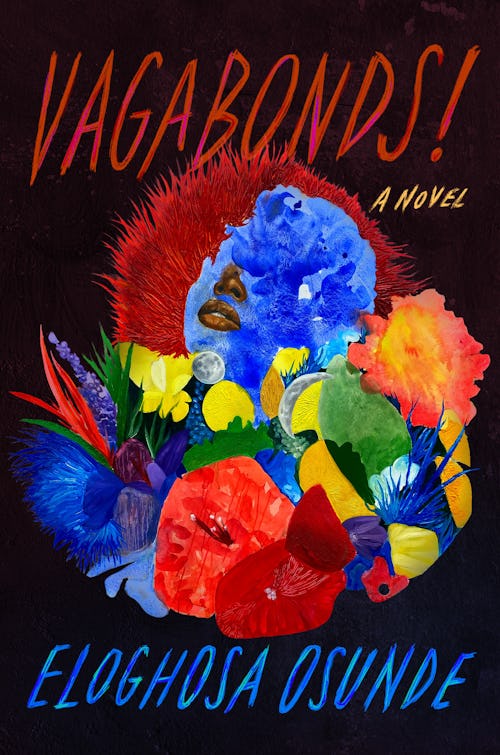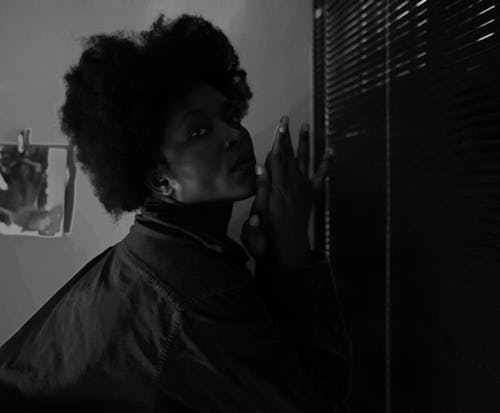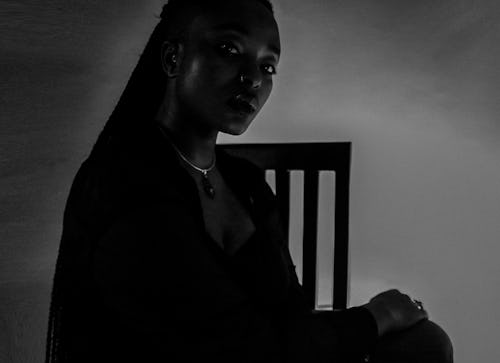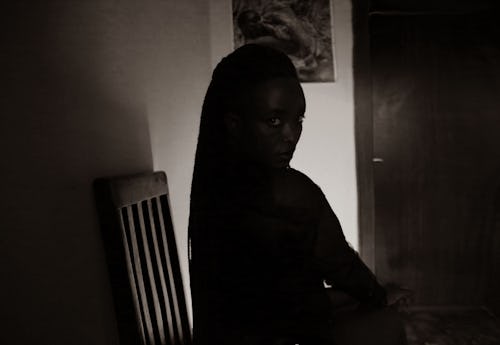
One early morning in 2018, just before the sun began to rise and the day was still caught between the steely blackness of night and the uncertain emergence of dawn, Eloghosa Osunde realized something that would change her life. At the time, the multidisciplinary Nigerian artist, known best for her fiction and creative nonfiction writing, had returned to work on a manuscript she hadn’t looked at for quite some time. The reason for the hiatus? “I was scared,” Osunde wrote to me in the live Google Document where she preferred we speak.
“I had caught myself 50,000 words into a whole other book I didn’t truly care about, and I was tired of so many things. [But] not writing was making me restless and darkly depressed.” Before going to sleep that early morning, she asked herself a crucial question in her journal: “Do I have enough courage to make the kind of work I’m pulled to?”
“I felt ashamed of my real answer (which I didn’t write down), and decided to turn that shame into a dare,” she remembers. “I love dares, sometimes. They’re delicious. I made certain promises to myself. Will I let people (including myself) talk me out of what I’m here to do? No. Is that negotiable? No.”
Not long after she made those promises, Osunde stopped working on that other manuscript and began writing Vagabonds!, her debut novel born out of the newfound creative freedom spurred on by her dare.

“I had to be ready to show myself to myself,” Osunde says. “I had to filter out whatever noise wasn’t mine – including the concern of people who want the best for me. Considering other people’s expectations or reactions before you write can be such a madmaking block. It simply hadn’t occurred to me before that moment that I could write with myself as my primary reader and prioritize my delight. I didn’t need to follow any structural formulas; I could just allow the book to sound how it wanted to.”
Vagabonds!, which seamlessly melds realism with Nigerian myth and urban fantasy, is a charged novel that resembles nothing and carves out its own specific beauty. The book is formatted through linked short stories that follow myriad characters, all outliers in one way or another — the queer, the economically disadvantaged, rogues, hustlers — whose lives sometimes intersect as the story leads them all to a defining event at the end of the book. Ahead of its March 15 release, Vagabonds! has already received rave reviews from some of the brightest and most influential voices in the literary world.
"There is nothing in the world like this book,” declared Lesley Nneka Arimah, the 2017 Kirkus-prize winning author of What It Means When A Man Falls From The Sky. And in an early blurb, 2015 Booker-Prize winner Marlon James wrote, “You don’t read this novel. You swan dive into its sea of gods and monsters, lost girls, violent boys, and well-behaved people both righteous and wicked. And when you finally surface, that sound will be you, gasping in wonder.”
Vagabonds! does indeed make you lose your breath at its formless storytelling structure. Its merging of multiple genres plays such a pivotal role in its execution that it’s difficult to imagine it being written any other way.

But categories aside, the most important thing about Vagabonds! is the way it arrests you. It sits you down and compels you to look at the characters, all of whom are wholly formed and terrifyingly real, even when they only appear in a few sentences. This is perhaps because Osunde crafted them to be as close to her skin as possible. “The characters in the book are real to me,” she says. “Some of them are me, others speak like people I know, love like people I hold, move and try like people I do life with — and we all belong in the future I see.”
A driving force in Vagabonds! is the characters and the ways their lives intersect with the themes at the heart of the book: systemic oppression, capitalism, economic inequality, anti-queer laws, and the joy of insisting on one’s personal truth in the face of it all. Each character we meet is deliciously complex: There are women of an entire community who disappear and leave their abusive husbands with a gaping aloneness, and an enigmatic fashion designer who is as flawed as she is revered. Some characters design the most exquisite ways to render destructive systems useless: Two women make a home out of love and quiet defiance, and a mother moves the world to protect her trans daughter from a queerphobic community. And sometimes, the characters are powerful and decisive spirits who decide the fate of their unknowing subjects. Eko governs the city of Lagos, and Tatafo’s gossip-mongering ties the book’s various stories together; their fallout presents a striking moral allegory. All told, Vagabonds! is a manual on rebellion.
Although Lagos, which also lies at the center of Vagabonds!, remains a constant source of inspiration for many Nigerian writers, with Vagabonds!, Osunde considers this complicated city from more nuanced eyes. She sees not only the decay on the surface (poor urban planning, endless traffic jams, exorbitant taxes, blatant economic inequality), but also all of the people buried by this city in favor of remaining cosmetically appealing.
“Lagos as a spirit is powerful. That’s a good thing to know,” she says. “If you’re willing, it will teach you strength of character, will toughen you up, will give you a hard shell to prepare you for great things. Lagos is also the kind of masquerade you have to think carefully before trying to dance with, because it might ask you for a limb.”

Osunde has long used writing to convey how she feels. She considers the craft a lifework that she is devoted to. “I saw it and recognized it as one of the tools I would use in this life,” she says.
“I was a kid when I realized what writing was: making something real that was not there before; bringing life onto a page using your words and attention. I was a very careful child, so I remember stepping away internally and thinking: mm mm, too powerful, too soon, I’m too young. My whole life I’ve known that I’ll write. I knew I was here to live a life that would warrant that, but I thought I’d have to be way older first.”
Osunde has been racking up the accolades ever since. She’s an alumna of the famous Farafina Creative Writing Workshop, organized by renowned writer and 2008 MacArthur Genius Grant awardee Chimamanda Ngozi Adichie. And since graduating from the New York Film Academy in 2017, she’s been awarded the prestigious Miles Morland Foundation Scholarship for African writing; and The Paris Review’s Plimpton Prize for Good Boy, a short story that follows a queer man who fashions the world for himself and his immediate community while navigating the queerphobic society of Nigeria. Osunde has earned her place as one of the leading names in a new crop of queer Nigerian writers, along with novelist Akwaeke Emezi and poet Romeo Oriogun, who are redefining the landscape of African literature.
But writing isn’t Osunde’s only artistic discipline. She also shot her own official author photograph and illustrated the cover for the Nigerian edition of Vagabonds!. And in late 2021, she directed a short film called Tatafo, named after one of her book’s key characters.
“I bring impossible things to life all the time across mediums through a process that is both craft-based and spiritually rooted,” Osunde says. “My skill set doesn’t pull on what I learn through conventional means, because my brain doesn’t work that way. Years ago, I watched bronze casters work in real-time in Benin City [the capital city of Edo, a state in Nigeria] and it felt like everything made sense. There’s an Edo way of working with art that comes from an ancient trust, a stillness and knowing that is irreplicable.”

While Osunde — who cites the bible and Marlon James’ A Brief History Of Seven Killings as primary influences — excels at crafting unforgettable characters, she tops that off with her unbridled approach to writing. She gently tears apart the flesh of semantics, all before rearranging its skeletons. Words are merged and given new meaning, the rules of proper English are abandoned and turned into poetry, some lines begin as sentences and end as a list. The narrative voice in Vagabonds! is peppered with Naija-speak, a combination of broken English and indigenous Nigerian languages inserted into everyday speech. The result is a voice that is both self-assured and inventive. “Naija English and pidgin are major anchors for me and are tied to how at home I feel in a place,” Osunde says. “It’s how I speak and think when I’m my most comfortable, and I miss it when it’s not there in books I love, so I wanted to write something that would thrill me completely as a reader, even if someone else had written it.”
Vagabonds! also weaves in a carefully considered compilation of facts that stare us in the face every single day: facts about the city of Lagos that sit and play on our lips as those of us who live here, move through life; as we sit through hours of notorious traffic, or hear of someone getting robbed, or learn of people being forcefully displaced so the government can erect new buildings that those same people can never afford.
Right now, Osunde is preparing for the Vagabonds! release. She is recording the audiobook and “using this time to move slowly, eat delicious food, write, catch up on reading and music and a certain kind of love,” she says. It speaks to her intentionality as a person and to the carefully considered work she has built.
At the heart of it all, Osunde hopes that Vagabonds! offers the reader, “the exact thing they need from a book in that moment, whether that is comfort or escape, challenge or delight, truth or even confrontation. I hope the book meets each reader where it matters. That’s it.”







